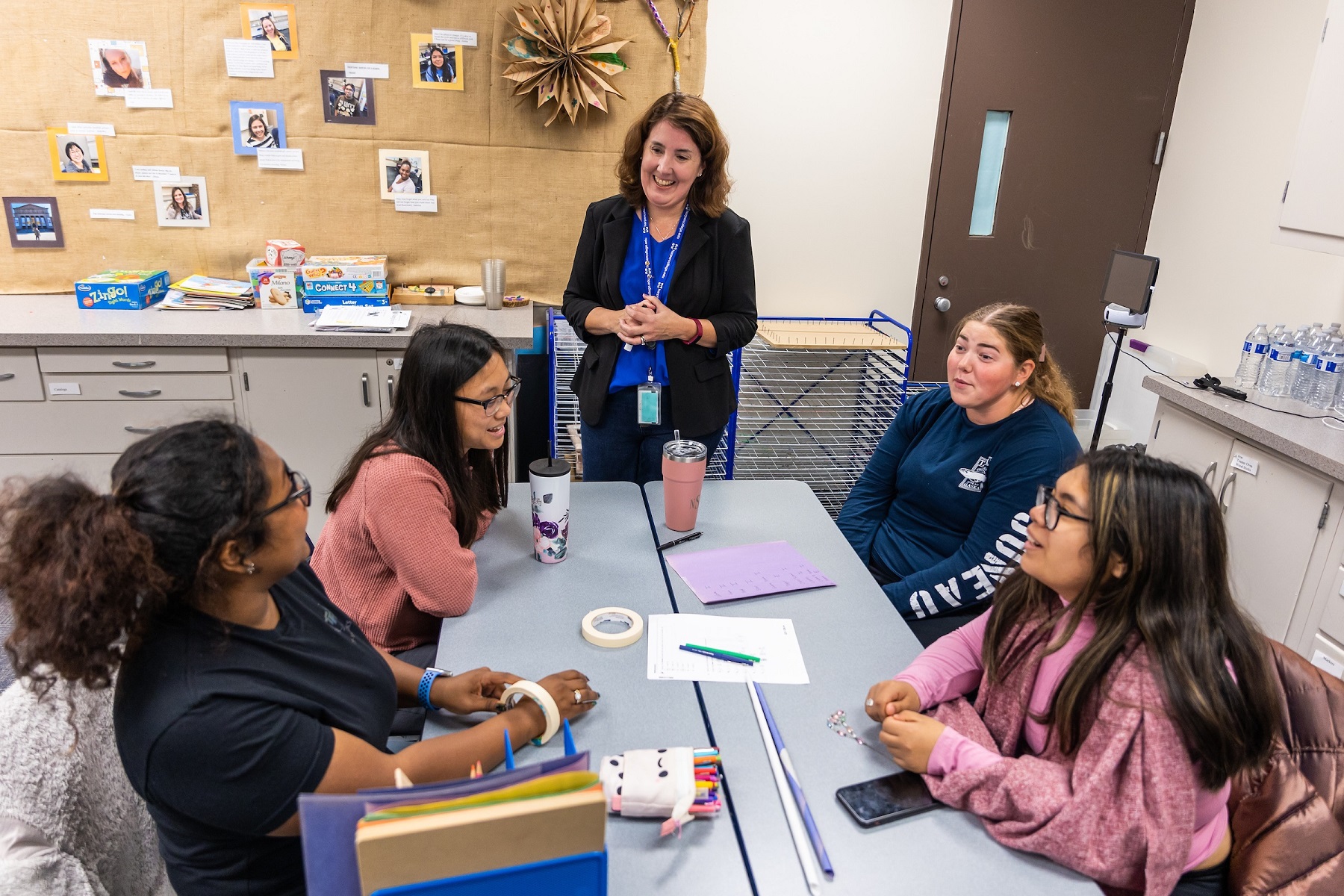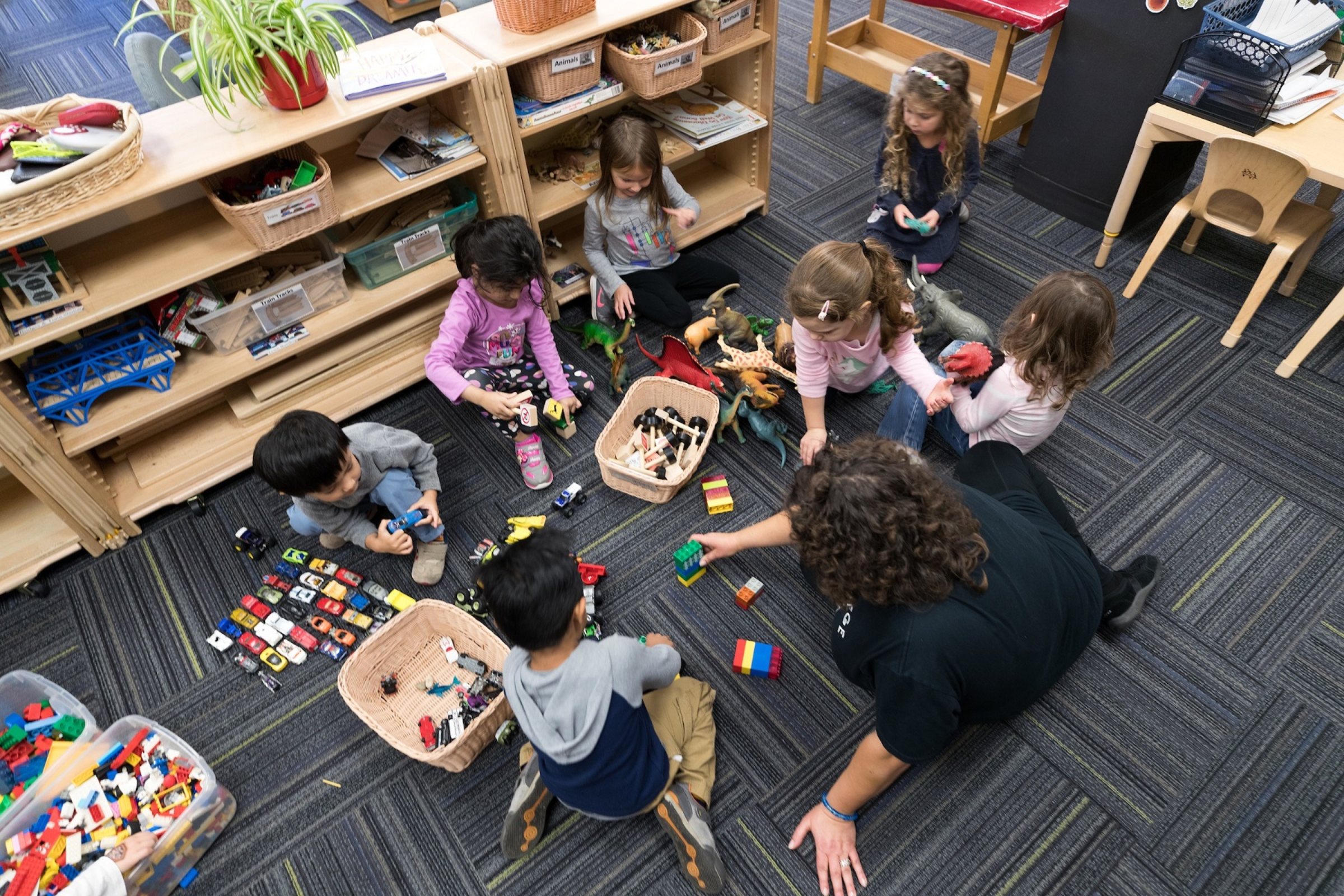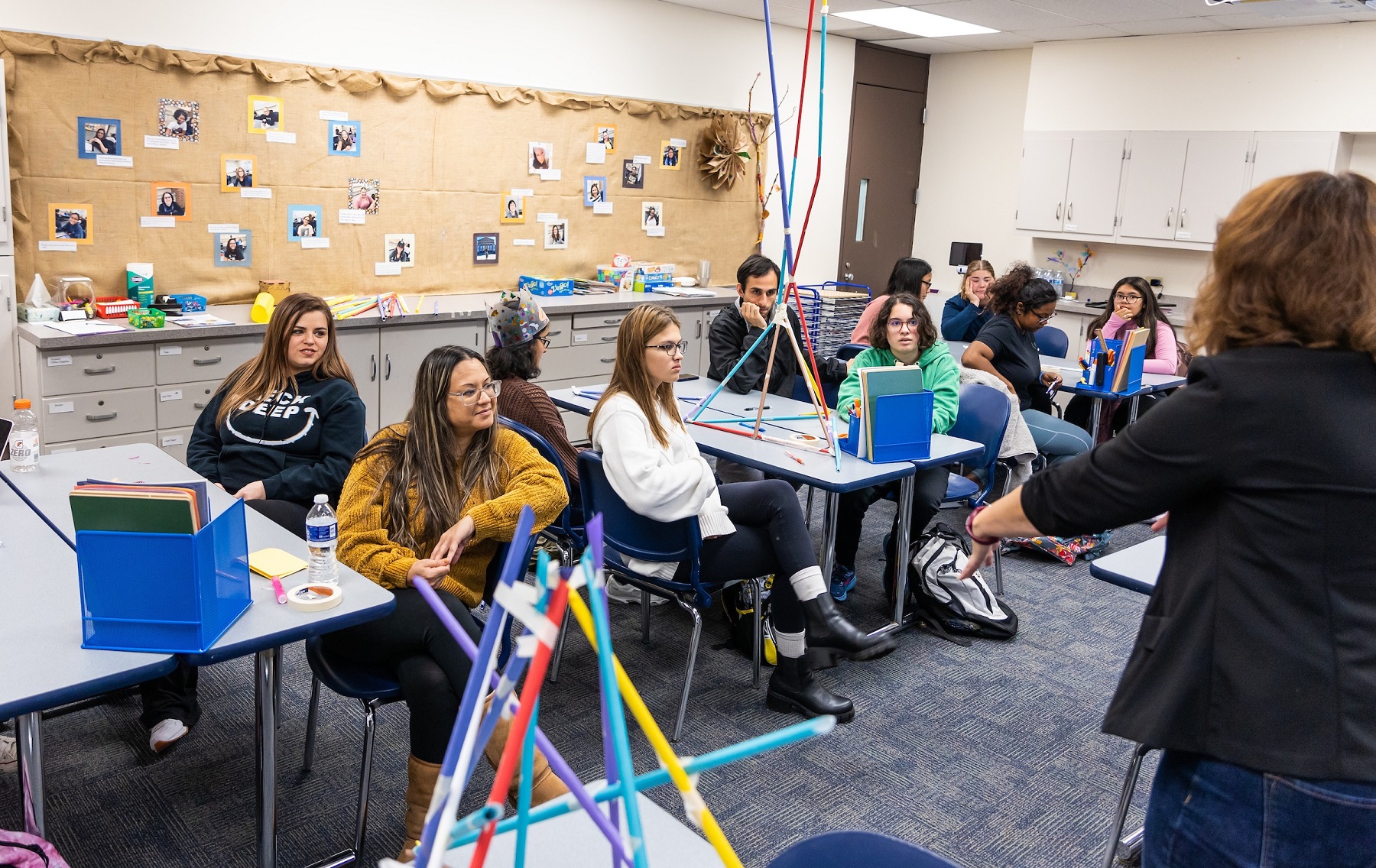

Harper College understands the importance in investing in early childhood education. That’s why Harper is a proud member of the Early Childhood Access Consortium for Equity (ECACE), a program created by the Illinois General Assembly in 2021 to address the shortage of qualified early childhood educators, advance racial equity and improve accessibility to the childcare workforce pipeline by removing barriers to credential and degree completion.
As one of ECACE’s 60-plus member institutions, the college received $1.4 million in grant funds to help recruit and support students in the incumbent workforce looking to upskill their qualifications and pursue degree or certificate programs in Harper’s Early Childhood Education (ECE) program.
“Harper and ECACE perfectly align on the importance of identifying and removing barriers to success for early childhood education students and for incumbent workers looking to advance in the field,” said Dr. Avis Proctor, Harper College president and a member of the ECACE Advisory Committee. “We understand that improved access to education can be critical for students, local employers and our community – especially given the positive lifelong impact that our ECE graduates have on young learners.”
Seeking to remove barriers, Harper’s Early Childhood Education (ECE) program has deployed ECACE grant funds in many ways – adding support staff, scholarships and resources while strengthening relationships with area childcare providers.
 The program’s added support positions include an early childhood support specialist,
an early childhood academic coach and a designated early childhood academic advisor.
These key support networks have been able to work closely with ECE students to ensure
they are on the path for success while pursuing degree or certificate programs.
The program’s added support positions include an early childhood support specialist,
an early childhood academic coach and a designated early childhood academic advisor.
These key support networks have been able to work closely with ECE students to ensure
they are on the path for success while pursuing degree or certificate programs.
The academic coach has been an integral part of students’ academic success by scheduling individual and small group tutoring sessions and working closely with the ECE faculty to ensure proactive steps are taken to work with students who are struggling with coursework.
“Using the academic coach in ECE was helpful because I get behind easily,” said ECE student Ryan Hedman. “It helps to have someone checking in with me weekly and reaching out. It is nice to have someone to help me when I get overwhelmed.”
In addition, students who are currently or have previously worked in the early childhood field can apply for an ECACE scholarship, which pays for 100% of the applicant’s total cost of attendance for an academic year after other eligible financial aid. In addition to covering educational costs, the scholarships have helped many students cover some of their living expenses while attending classes.
For the fall 2022 semester, Harper ECE Scholarship amounts ranged from $500 to $10,000 for Harper ECE award recipients, with the average award being approximately $6,000.
“I was floored by the amount I received,” said Nanette DeCosmo, a Harper ECE student and scholarship recipient. “Being a single mom and having two children at home, this scholarship was extremely helpful.”
Harper’s ECE program is using the ECACE grant in a variety of ways to remove barriers to student success. One method is the creation of a lending library for students taking courses in early childhood education. Harper’s leadership, faculty and staff understand that textbook costs pose a financial barrier for students and this lending library allows them to take courses without the worry of additional textbook fees.
 Additionally, the program is offering all students enrolled in an early childhood
program of study a free Chromebook for the spring 2023 semester to use and keep. Many
ECE students don’t have a computer to complete their coursework and this Chromebook
will break down another barrier to their success.
Additionally, the program is offering all students enrolled in an early childhood
program of study a free Chromebook for the spring 2023 semester to use and keep. Many
ECE students don’t have a computer to complete their coursework and this Chromebook
will break down another barrier to their success.
With ECACE grant funds, Harper’s ECE program also created stipends for students completing an early childhood practicum. Harper also offers retention stipends to cover the cost of a course after the student has completed 75% of their program of study.
On top of all of the program’s new staff, scholarships and resources, recruitment events are an integral part of growing the ECE program and helping to address the state’s shortage of early childhood educators.
“We receive calls weekly from program directors desperate for teachers, so we feel the need on a community level,” said ECE Program Coordinator Kathy Nikolai, who is also a voting member of ECACE.
Childcare providers don’t just need additional teachers, but they also need those teachers to be better qualified to care for and educate the young children in their programs. Harper hosted a Provider Open House in October to share information about the college’s ECE certificate and degree programs. In addition, Harper ECE staff and faculty have been making visits to local childcare centers to share information with directors and staff who are interested in returning to school to upskill their qualifications.
“It is absolutely necessary to invest in early childhood education because these teachers and caregivers are the ones providing the building blocks of physical, social/emotional and cognitive development for our youngest of learners,” said Lauri Marmorstone, Harper’s Early Childhood Support Specialist. “The impact of high-quality early childhood education prepares children for future success.”